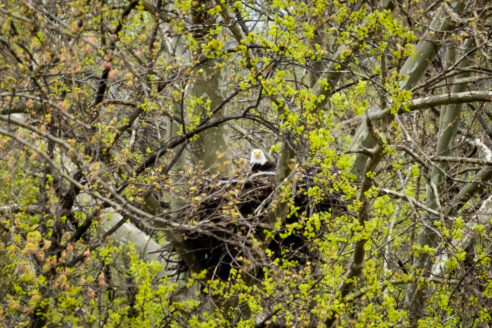Wildlife
Learn more about your favorite Chesaepake Bay wildlife.
Bay scientists evaluate reasons for the blue crab’s population decrease
April 7, 2023Invasive fish, disease, warming waters and more are seen as threats to blue crabs
Read story
Who's afraid of the big, bad wolf?
March 17, 2023Not those who visit the 55 wolves living at the Wolf Sanctuary of PA
Read story
Watch ospreys, eagles, otters and more with these Chesapeake wildlife cams
March 14, 2023Over a dozen wildlife cams can be found in the Chesapeake Bay watershed
Read story
5 LBBs (little brown birds) to see in the Chesapeake
March 3, 2023Identifying commonly overlooked birds
Read story
Blue-billed and bound for the Bay
February 2, 2023The lesser scaup is more common in the Chesapeake than the greater scaup
Read story
How do road salts impact Chesapeake critters?
January 30, 2023A wood frog visits a vernal pool in Chesapeake Beach, Md., on March 10, 2019. Vernal pools are seasonal wetlands that attract a range of amphibians, which use the fish-free environment to spawn and reproduce. Amphibians that breed early in the year, like the wood frog are particularly vulnerable to contamination from road salts.
Read story
When other plants are losing their leaves, witchhazel puts on a show
January 5, 2023The yellow flowers of witchhazel plant bloom as the final leaves fall. (Photo courtesy of Susan Thomas/iNaturalist CC BY-NC)
Read story
Shall I compare thee to an invasive species?
December 1, 2022The European starling remains a curious case study on non-native species
Read story
Tagging along with monarch butterflies
November 10, 2022Community science has been telling monarchs’ story for 50 years
Read story
Four ways owls are superior predators
November 3, 2022Special adaptations help owls successfully hunt in all conditions
Read story
